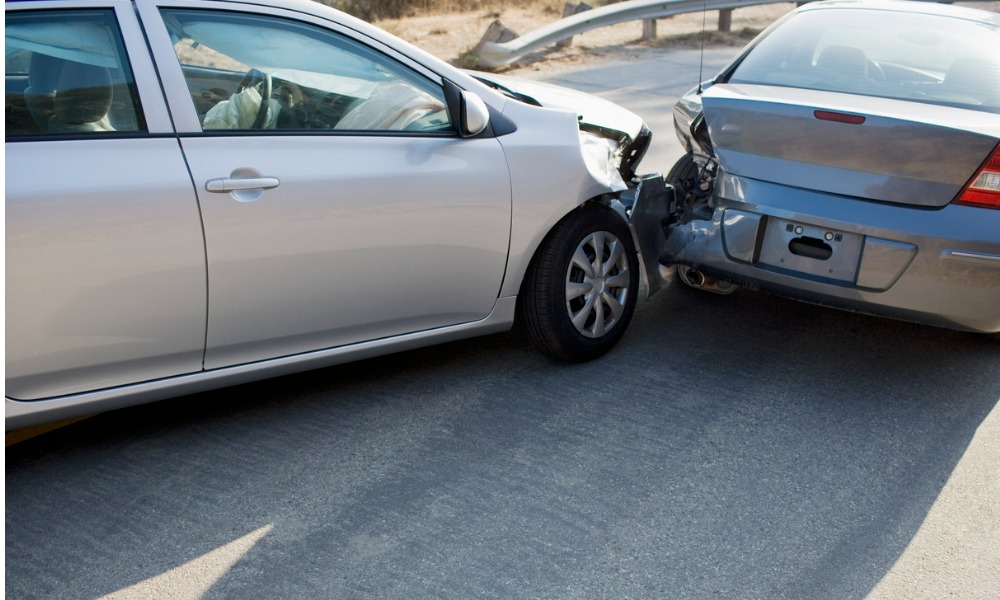The case involves a car accident which occurred more than 7 years ago

The Ontario Superior Court of Justice has emphasized that an “extreme delay” in prosecuting a claim causes prejudice.
In Maharaj v Prajapati, 2023 ONSC 3547, Hoomradge Maharaj alleged that a vehicle recklessly pulled out in front of him, which caused him to apply the brakes suddenly. Michael Tamondong's vehicle, owned by Trend Financial Corporation, rear-ended Maharaj's car. Tamondong's vehicle, in turn, was rear-ended by Waylan Troy Greaves' car. The accident occurred in 2015.
The vehicle which caused Maharaj suddenly to apply the brakes was not involved in any accident and drove away. Maharaj claimed that he memorized the vehicle's license plate and discovered that it was registered to Vinodkumar and Niravkumar Prajapati.
Maharaj commenced a suit against Trend and Greaves in 2017. The insurers of the defendants requested documentation and information under s. 25 of the Insurance Act, Maharaj sent limited information to Trend's insurer and did not send anything to Greaves except a copy of the statement of claim.
Motion to extend time
Maharaj brought a motion to extend the time to serve the statement of claim on the defendants. The Ontario Superior Court of Justice noted that in early 2019, Greaves' insurer was involved in a related action involving Trend's and Greaves' vehicles, but the issue of Maharaj's proceeding was not raised, and nothing has occurred in this proceeding. The court also noted that this other related action commenced in 2017 and was served on the parties, and has proceeded through discoveries.
The court further noted that Maharaj took no steps to serve the statement of claim on any defendant, nor bring the motion to extend the time for service, nor attempt to move the action forward in any way until the plaintiff brought the motion to extend the time for the service of the statement of claim. The court pointed out that, to date, no attempts have been made to serve the defendants.
Furthermore, Maharaj discontinued the action against the Prajapatis after describing their vehicle as the principal cause of the accidents. The court pointed out that the Parajapatis are necessary and proper parties to the plaintiff's claim and to any cross-claims and claims for contribution and indemnity.
‘Extreme delay’
The court noted that Maharaj did not allege that the failure to serve the statement of claim was due to a "slip or mere inadvertence" but relied solely on the ground that there is "no objective evidence that the defendants will suffer prejudice by reason of delay." The plaintiff explained that the delay was due to the inability to locate the Parajapatis, the failure of an associate in his counsel's office to deal with the necessary file, and COVID-19.
The court said that the delay, in this case, is "extreme" as the limitation period has long ago expired. The court stressed that the plaintiff knew in 2019 that the motion to extend the time for service of the statement of claim needed to be brought and would be opposed. Yet, the plaintiff did nothing for four years. In 2022, the plaintiff was again made aware that the motion to extend the time for service needed to be brought and would be opposed. Yet, as the court pointed out, "another year with the plaintiff doing nothing."
The court further found that the fact that the plaintiff's medical records have never been sent to the defendants underscored their inability to fully and properly investigate the liability and damages aspect of the claim that arose over seven years ago.
Prejudice due to delay
The court found no merit in the plaintiff's explanations for the delay. The court found that the accident occurred more than seven years ago, and it is not clear if the Prajapatis even knew about the consequences of the driver's alleged negligence. Furthermore, the court said that even if the Prajapatis could now be located, their recollection of who was driving and what happened on that specific night at that particular time is highly problematic. The court also pointed out that the task of locating the Prajapatis has seriously been compromised, given the long delay.
The court further found that the plaintiff is now 77 years old and allegedly suffered a brain injury almost 8 years ago. The court said there may be issues with his recollection now or in a few years when this matter goes to trial.
The court was satisfied that prejudice was made out in these circumstances. A "full, proper, fair, and just determination" could not occur, and the court entirely blamed the plaintiff.










